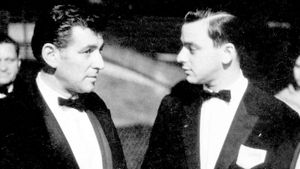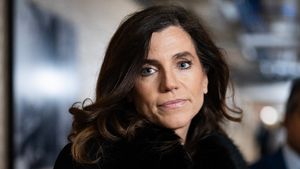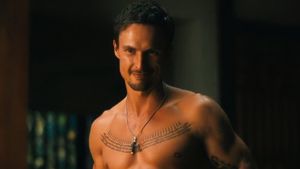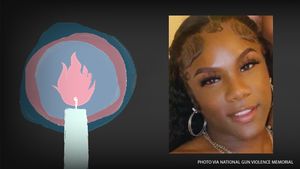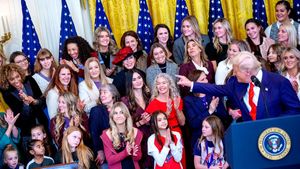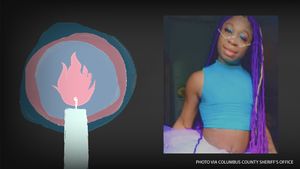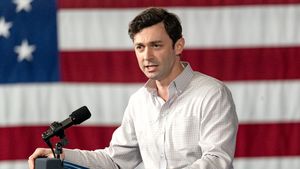In 2020, Joanne "Jo" Rowling, aka J.K. Rowling, began to spew forth a torrent of anti-trans rhetoric across various platforms while championing legislation that directly harms transgender people, particularly transgender women. Most recently, she falsely alleged that a cisgender female boxer, Imane Khelif, is transgender to belittle the trans community and bully Khelif.
Rowling refuses to use the correct pronouns in depicting transgender people as inherently dangerous. She wrongfully asserts she is protecting cis women like herself. Meanwhile, Rowling ignores or even justifies the high rates of violence against transgender people.
Rowling basks in the attention heaped upon her every time she Tweets.
Like others who grew up loving the Harry Potter books, I wonder about Rowling's Death Eater transformation.Of course, we don't need to know whyRowling says what she says; it's enough to know she's causing harm. But curiosity remains. One theory is that Rowling has inherited thetransphobia prevalent among white feminists in Britain. Other people, Rowling included, blame her behavior on her past traumas.
Many of us are confused because we once thought the Harry Potter series advocated for kindness and equality.
The series staunchly defends people with non-magical heritage: Muggleborns, more cruelly known as Mudbloods. Lord Voldemort's evil plan revolves around Muggle domination, and in fighting Voldemort, protagonists simultaneously fight to protect Muggles and Muggleborns alike. Muggleborn discrimination appears to stand in for the discrimination of people due to race, sexuality, gender, and more.
There's an essential bit of historical context we need to consider when pondering the ethics of Harry Potter: J.K. Rowling would have been an impressionable almost 16-year-old when Prince (now King) Charles married 20-year-old Diana Spencer, a commoner, in 1981. Though the marriage between Charles and Diana famously ended in divorce, at the time, the idea of a non-royal marrying a prince sparked excitement worldwide. Diana gave birth to a boy named Harry in 1984. Meanwhile, in Harry Potter, a member of wizarding royalty (a "pureblood"), James Potter, married a "commoner" (a "Muggleborn"), Lily Evans, who gave birth to a boy named Harry in 1980.
The analogy becomes clear: Muggleborns correlate most strongly with British non-royals ("commoners").
Today, with her defensive transphobic writings, Rowling tries to represent herself as a reborn Princess Diana. A mother and survivor of a difficult divorce, a victim of the paparazzi and of extremist narrowmindedness, a staunch supporter of AIDS patients, and a hero to women and gays everywhere. Rowling seems to think everyone ought to love her — and her views – like they loved Lady Di.
Well. How's that going, Jo?
Princess Diana was beloved in part for her support for stigmatized people, including AIDS patients. In April 1987, at the height of the AIDS epidemic, Princess Diana opened the UK's first HIV/AIDS unit. She was photographed shaking hands with patients, publicly challenging the widely-held misconception that AIDS could be transmitted through touch while demonstrating her compassion for the community.
After Diana's death, Rowling began to imitate the princess's advocacy for people with HIV/AIDS. We learn that Harry's kind new Defense Against the Dark Arts teacher, Professor Remus Lupin, has a condition that represents AIDS: lycanthropy.Rowling overtly confirmed that lycanthropy is a metaphor for AIDS while suggesting her continued interest in blood: royal blood, "common" blood, and blood-borne conditions.
However, the metaphor itself is flawed, as Lupin is a danger to others. This fact does an abject disservice to those struggling with AIDS. When many readers–including the actor who played Lupin in the movies–assumed Lupin was gay, Rowlingdenied it, married Lupin to a woman, then killed him off.
Rowling might want to seem progressive, but she has absolutely zero interest in envisioning queer sexuality. There are no canonical lesbian characters in the Harry Potter books; all female characters dutifully become wives and mothers. There are also no canonically gay characters in the Harry Potter series. In an interview before the publication of the seventh book, Rowling threw out that she'd always seen Albus Dumbledore as gay. That was never made canon in the books, however. Focusing on Dumbledore as a celibate and subtly representing his desire as immoral, Rowling rescues her character from the supposed dangers of queer existence by shoving him into asexuality.
Harry Potter claims that Muggleborns shouldn't be mistreated, yet it emphasizes the value of pure blood throughout. Harry can defeat Voldemort thanks to his blood relationship with the Peverells, who created the Deathly Hallows, including the Elder Wand, which ultimately comes into Harry's rightful possession. It's all about blood and biology–and power.
Rowling stands for cis women and cis women only, defending them with tired, transphobic rhetoric from people who had no quarrel with her to begin with. Rowling isn't about to become royalty. But she makes an unfathomable amount of money, and she can continue to make herself feel bigger by stomping on marginalized people and trashing their access to medical care.
In the seventh book, when Hermione drinks Polyjuice Potion with Harry's hair in it and is magically trapped in a boy's body, Harry continues to use she/her pronouns and knows she is a girl.
If only Rowling possessed the wisdom she bestowed upon a fictional character.
And to any transgender readers, know that you are loved, and you deserve all the love in the world.
Dr. Vivian Delchamps Wolf (she/her) is an Assistant Professor of English at the Dominican University of California (DUC). She teaches 19th-century American literature, feminist disability studies, writing, and the health humanities. She received the Melba Beals Award for Excellence in Diversity for contributions to equity work on campus. Her published and forthcoming articles appear in Disability Studies Quarterly, the Emily Dickinson Journal, and Literature & Medicine, among others.
Voices is dedicated to featuring a wide range of inspiring personal stories and impactful opinions from the LGBTQ+ and Allied community. Visit pride.com/submit to learn more about submission guidelines. We welcome your thoughts and feedback on any of our stories. Email us at voices@equalpride.com. Views expressed in Voices stories are those of the guest writers, columnists and editors, and do not directly represent the views of PRIDE.com or our parent company, equalpride.



















































